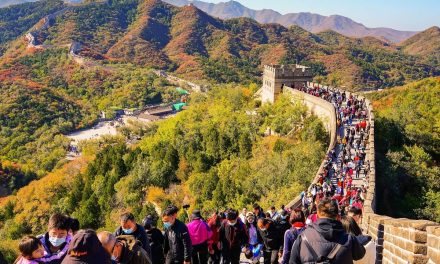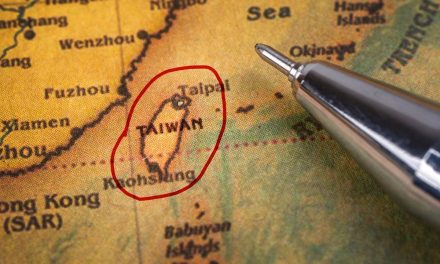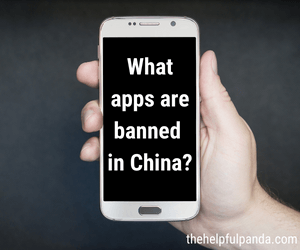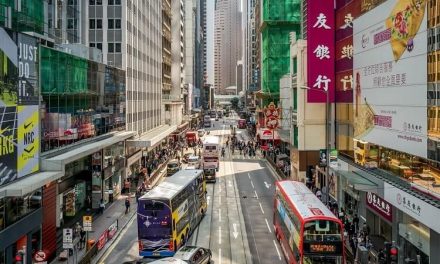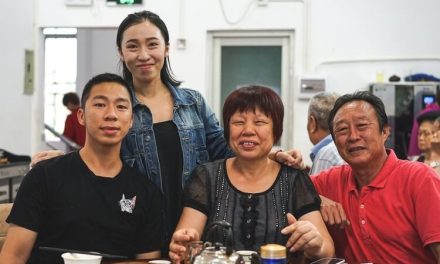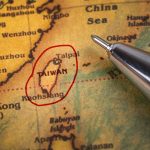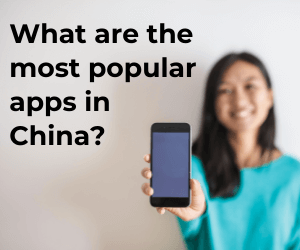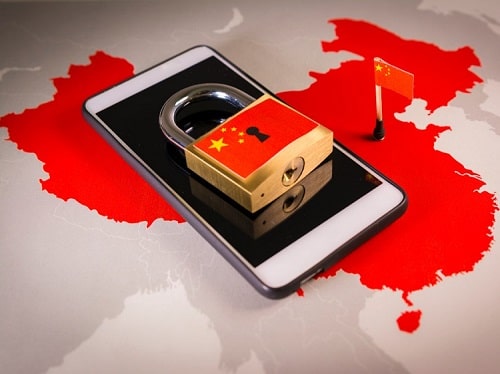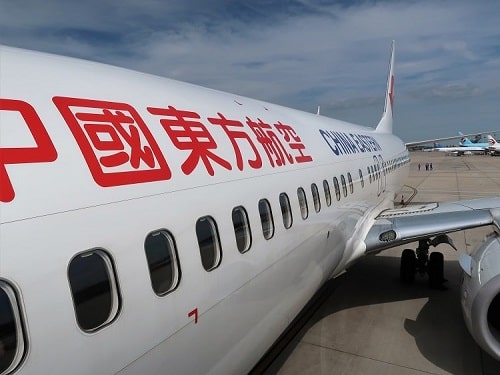Let’s face it, the Chinese do things differently. And Christmas in China is no exception.
The Chinese have only been celebrating Christmas for the past few decades.
Because of this, many of the festive traditions you know and love simply don’t exist in China. Instead, the Chinese have introduced their own unique features.
It’s like Christmas with a twist!
1. Children don’t receive presents

Chinese kids generally don’t receive presents at Christmas time. Image by I Love Photo on Shutterstock.
Sorry kids, there won’t be any presents for you under the Chinese Christmas tree this year.
Parents might take their kids shopping or to look at the decorations in the big cities, but they won’t give them a sackful of presents.
Gift-giving at Christmas time in China is becoming popular with young couples though.
Locals use Chinese apps like Taobao to buy inexpensive gifts for their partner.
2. It’s neither a holiday nor a holy day
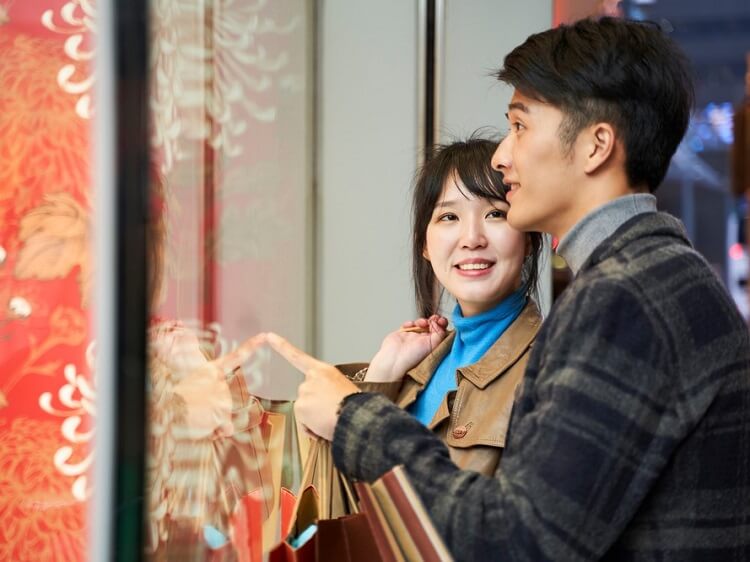
Christmas in China means commerce. Image by Imtmphoto on Shutterstock.
Christmas Eve in China is more like Chinese Valentine’s Day than anything else – a day where young people go out to eat and go to shopping malls.
The Chinese don’t celebrate Christmas in a religious sense. In fact, many Chinese would be unaware that Christmas is based on a Western religion.
They also don’t get the day off work. Christmas is not a public holiday in China.
3. The translation for Santa Claus is funny

The famous ‘Old Christmas Man’. Image by Krakenimages on Unsplash.
Some English words and expressions are impossible to translate into Mandarin. That’s why the Chinese often come up with unique alternatives!
When it comes to the words ‘Santa Claus’, they’ve translated this as ‘Christmas Old Man’ or ‘Old Christmas Person’.
It’s kind of creepy, but it works!
4. Chinese Santa is a musician

Chinese Santa Claus is musically gifted. Image by YuryKara on Shutterstock.
Speaking of Saint Nick, who would have thought that he could play the sax?
In China, you’ll see dolls and images everywhere of Santa Claus playing the saxophone.
The origins of this are unknown. However, some believe that when China opened up to the rest of the world, the Chinese saw the saxophone as a cool Western musical instrument, and naturally merged it with the festive season.
Others believe it has to do with former President of the United States, Bill Clinton, who famously played the saxophone in the presidential race.
5. Decorated apples represent peace
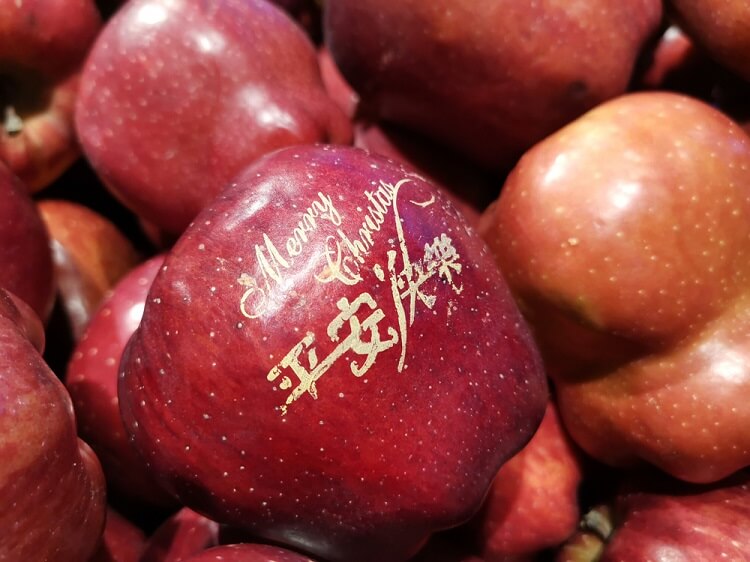
A decorated Chinese Christmas peace apple. Image by PLA0081 on Shutterstock.
Christmas in the West isn’t synonymous with healthy food. But in China, decorated apples represent this happy time.
In Mandarin, the first syllable of the word ‘apple’ (píngguǒ) is the same as the first syllable as Christmas Eve (píngān), which literally means ‘peace night’. So, by giving someone an apple, you’re wishing them a safe and peaceful year.
Most locals don’t know that this Christmas tradition actually started in their own country!
The stenciled messages on the apples can range from the stock-standard ‘Merry Christmas’ to the more adventurous ‘I love you’.
6. Christmas trees aren’t real

Real Christmas trees are rare in China. Image by Craig Adderley on Pexels.
Where I’m from in Australia, I can drive about an hour and cut down a tree at a Christmas tree ‘farm’.
But in China, you’ll only find plastic trees.
Actually, most plastic Christmas decorations in the world originate from China. The decorations on your tree probably come from the city of Yiwu, in the east of the country.
Hong Kong is an exception, however, and the locals there love real trees (this may stem from the city’s colonial past).
Hong Kongers have to visit importers like Chun Hing Garden to get a real tree from the US. A 20ft Noble Fir tree will set you back thousands of dollars. Ouch!
7. Christians hide their faith

A Christmas church service in Macau (not mainland China). Image by Kit Leong on Shutterstock.
Although China is an atheist country, five religions are formally recognized by the Communist Party. Catholicism is one of these.
However, religious activities are strictly controlled and monitored.
It’s estimated that about 1% to 5% of Chinese people are Christians. While there’s a small number of churches across the country, people generally practice their religion privately.
You certainly won’t see people door-knocking and singing religious Christmas carols. Public congregations of any kind simply don’t happen.
8. Sisters before misters

One of Chinese Santa’s many sisters. Image by Krakenimages on Shutterstock.
In many Western countries, magical elves are an important part of Christmas.
But in China, you won’t see an elf anywhere. Instead, Santa is helped by his numerous ‘sisters’ who are dressed in the traditional red and white.
Sometimes, you might even see Chinese girls dressed in sexy attire surrounding Santa.
Yet sadly, Chinese Santa Claus is single. There’s no such thing as Mrs Claus.
9. Celebrations can be banned
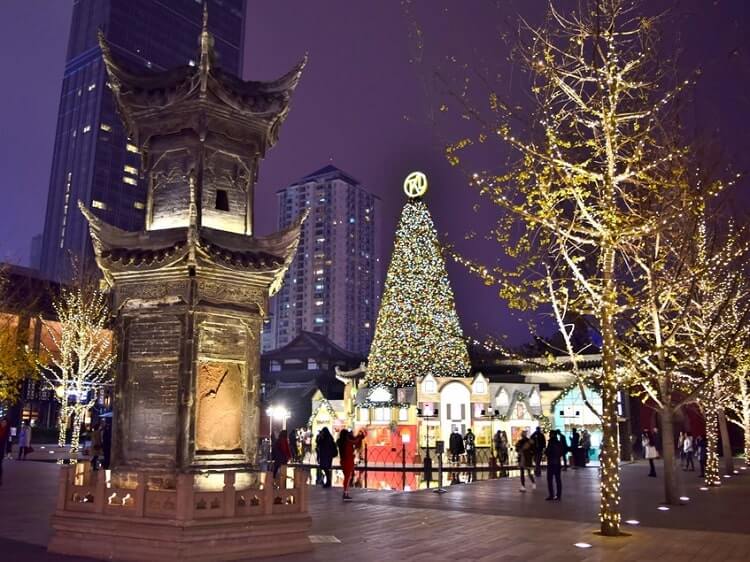
The Chinese authorities occasionally crack down on Western culture. Image by Nate Hovee on Shutterstock.
Every now and then, local authorities clamp down on Christmas.
For instance, officials in Hengyang, a city in Hunan province, said in a 2019 social media post that anyone caught holding Christmas sales or celebrations that blocked the streets would be punished.
Communist Party members, the notice said, should avoid Western festivals and instead be “models of adherence to traditional Chinese culture”.
Even a local celebrity has been criticized for sharing festive content online.
For now however, Christmas in China seems to have survived!
10. Turkey is out
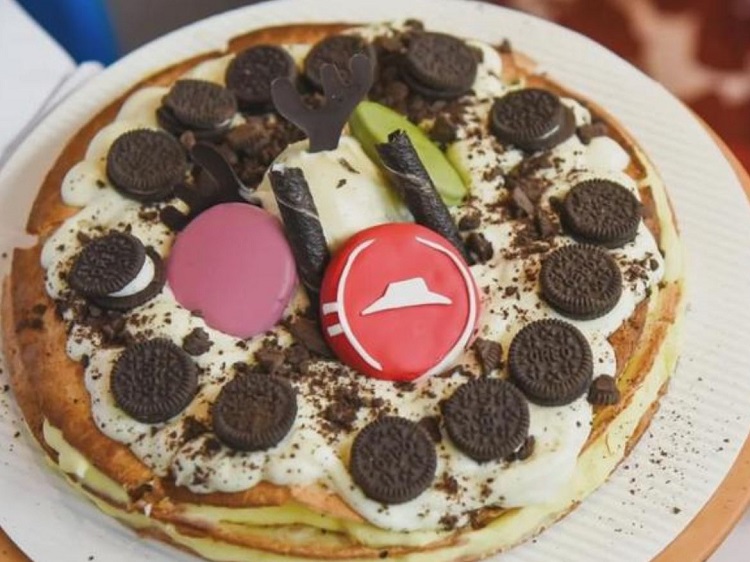
Chinese Christmas pizza. Image from Daniel Ahmad @ZhugeEX on Twitter.
And crazy Christmas food is in!
The typical Chinese kitchen doesn’t have an oven. People tend to cook on a hob or cooktop instead.
This probably explains why the traditional Christmas dinner never took off in China.
To give locals a feel for what a Western Christmas might taste like, Pizza Hut China launched their very own turkey pizza in 2018. Ewww!
Then in 2020, they released a special Oreo ice-cream pizza in time for the Christmas holidays.
If you look closely at the photo above, you’ll even see chocolate reindeer antlers!
11. Jingle Bells rules
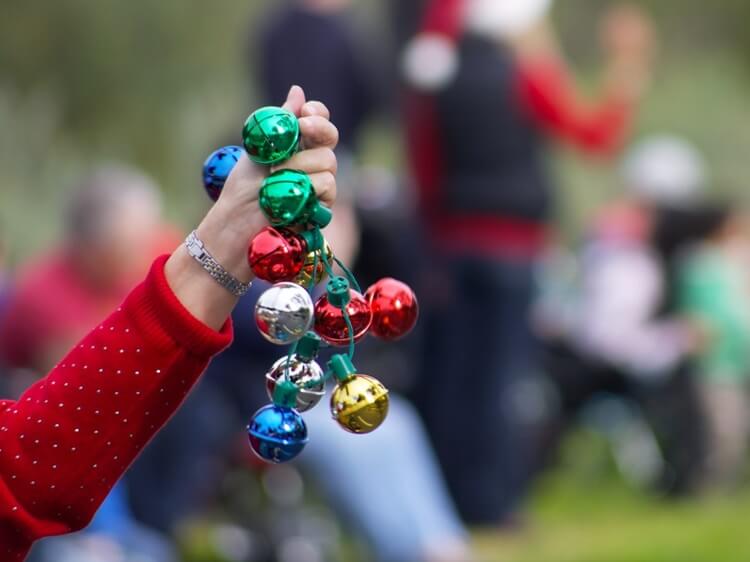
Christmas music is one-dimensional in China. Image by James Lee on Unsplash.
Forget Silent Night or any of the other countless Christmas songs out there, Jingle Bells is by far the most popular in China.
And it’s quite possibly the only Christmas song you’ll hear in China. Some stores play it on repeat.
Jingle Bells is so popular that it’s not unusual to hear it played during the other months of the year, too.
Heading to China soon?
If you’re a first-time visitor to China, check out these helpful tips which have been created especially for people who have never been to China before.
And, if you happen to be in China during the holiday season, make sure you plan ahead.
Chinese New Year is in January or February depending on the lunar calendar, and train tickets and flights get snapped up very quickly.
Christmas in China is uniquely different
As you can see, Christmas in China is unique, special and sometimes kind of crazy.
It’s a commercialized event and not a religious holiday, so anything goes.
And as the years roll on, new local traditions may emerge and Christmas in China will become even more interesting.
Next, watch the video above for a funny take on how China “got Christmas wrong”, or read about the ways Chinese celebrate Christmas (which I also wrote).
Main image credit: Testing on Shutterstock.
FAQ about Christmas in China
When is Christmas in China?
It’s the same as in the West. Christmas Eve is on December 24th, and Christmas Day is on December 25th.
What is Christmas called in China?
It’s called Shèngdàn jié (圣诞节) which literally means Holy Birth Festival.
Is Christmas allowed in China?
While there’s the occasional crackdown on Western culture in some parts of China, Chinese people can and do enjoy celebrating Christmas. However, it’s not a holiday and people don’t get the day off work.
How do people celebrate Christmas in China?
The locals go out to eat and go to shopping centers. Some young people may give their partner or friend an inexpensive Christmas present. Families don’t get together for a big feast like they do in the West.
What are some Christmas traditions in China?
The giving of decorated apples is a Chinese Christmas tradition. The apples represent peace and harmony, due to the sound of the words in Mandarin. There are also big sales at the stores on Christmas Eve, so people go shopping.


